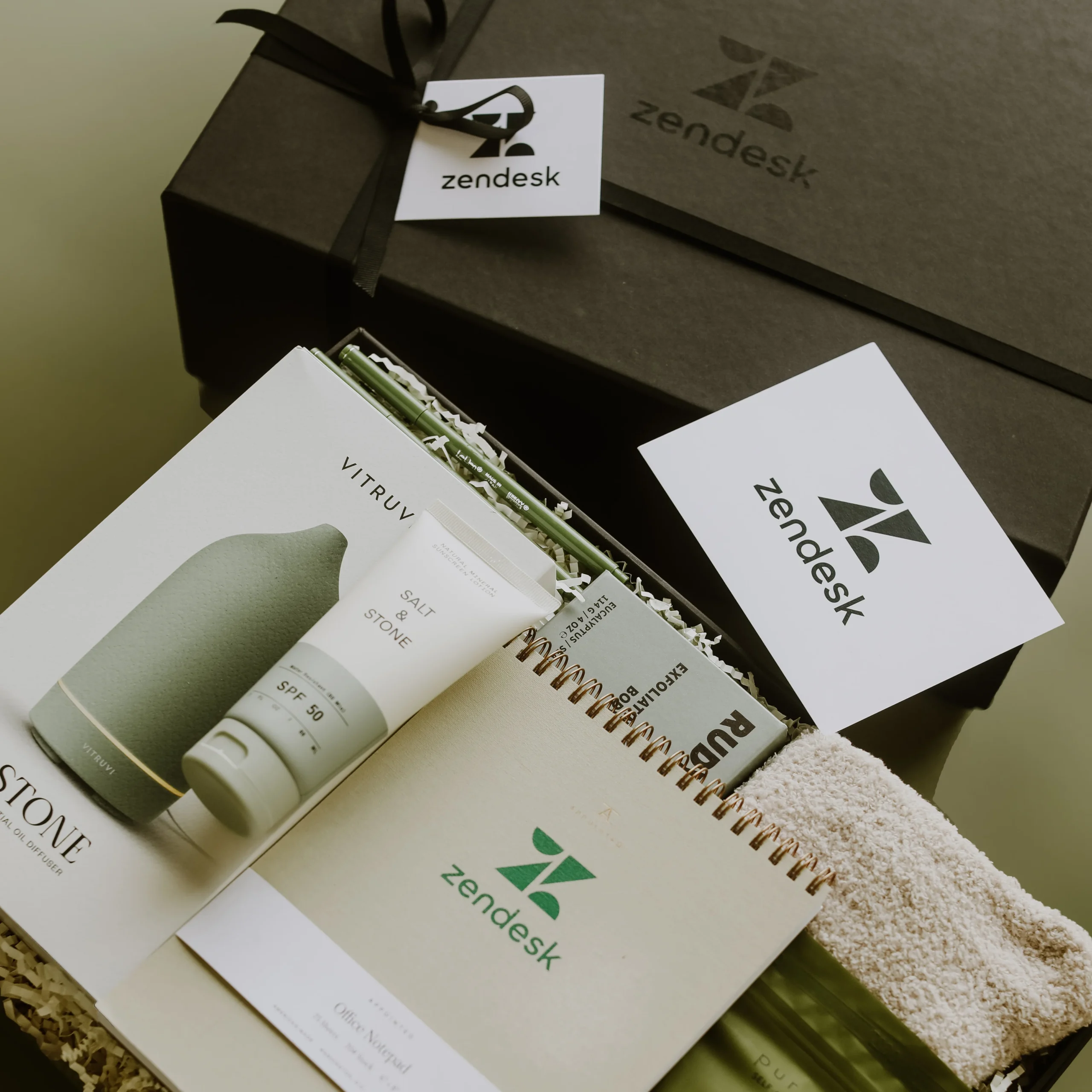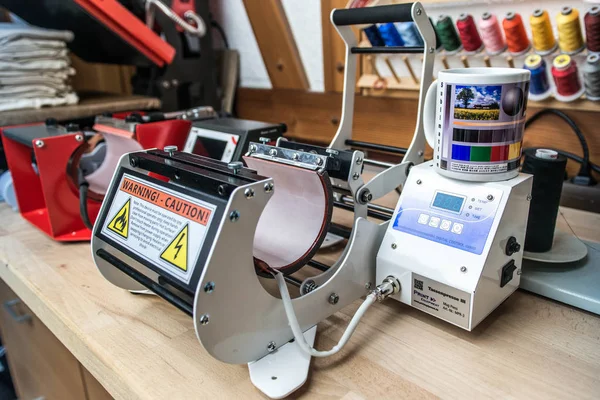Gift kits are carefully assembled collections of products or items packaged together for gifting purposes. These sets can encompass a wide range of items, including beauty products, food and beverages, clothing and accessories, or experiential offerings such as spa treatments or travel packages. Gift kits are typically designed with aesthetic appeal in mind and can be tailored to specific themes or occasions, making them a popular choice for both personal and corporate gift-giving.
They serve as a means to express gratitude, commemorate special events, or enhance relationships with customers and clients. The presentation of gift kits can vary from simple gift baskets to elaborate custom-packaged gift boxes. They may be available as pre-assembled, ready-to-gift sets or can be personalized and curated by the gift-giver.
The contents of gift kits are diverse and can be tailored to suit the intended recipient and the purpose of the gift. For instance, a cosmetics company might offer a skincare gift kit featuring a selection of their most popular products, while a gourmet food brand might create a gift kit containing a variety of artisanal snacks and delicacies. Gift kits provide a versatile and effective method for presenting thoughtful and meaningful gifts suitable for various occasions.
Key Takeaways
- Gift kits are curated sets of products or experiences designed to be given as gifts.
- Brand loyalty is crucial for businesses as it leads to repeat purchases and positive word-of-mouth.
- Gift kits can enhance brand loyalty by creating memorable experiences for customers and reinforcing brand values.
- Effective gift kits are well-curated, high-quality, and aligned with the brand’s image and values.
- Personalization in gift kits can make customers feel valued and create a stronger emotional connection to the brand.
- Successful examples of gift kits include personalized skincare sets and experiential gift boxes tailored to the recipient’s interests.
- Tips for implementing gift kits in your brand strategy include understanding your target audience, aligning the kits with your brand values, and leveraging personalization to create a memorable experience.
The Importance of Brand Loyalty
Brand loyalty is the tendency of consumers to consistently choose one brand over others in the same product category. It is a crucial factor for businesses as it leads to repeat purchases, higher customer retention, and ultimately, increased profitability. Building brand loyalty requires creating positive experiences for customers, providing high-quality products and services, and establishing a strong emotional connection with the brand.
In today’s competitive market, where consumers have countless options at their fingertips, brand loyalty has become more important than ever for businesses to thrive. Brand loyalty is not only beneficial for businesses in terms of sales and revenue, but it also helps in creating a community of loyal customers who advocate for the brand and spread positive word-of-mouth. Loyal customers are more likely to engage with the brand on social media, participate in loyalty programs, and provide valuable feedback that can help the brand improve and grow.
Additionally, brand loyalty can also lead to higher customer lifetime value, as loyal customers tend to spend more over time and are less sensitive to price changes or promotions from competitors. Overall, brand loyalty is a key driver of long-term success for businesses in any industry.
How Gift Kits Can Enhance Brand Loyalty
Gift kits can be a powerful tool for enhancing brand loyalty by creating memorable experiences for customers and strengthening the emotional connection they have with the brand. When done right, gift kits can leave a lasting impression on recipients and make them feel valued and appreciated, which in turn can lead to increased brand loyalty. By offering carefully curated gift kits that align with the brand’s values and identity, businesses can reinforce their brand image and build stronger relationships with their customers.
Gift kits can also serve as a way for brands to express gratitude and show appreciation to their customers, which can go a long way in fostering loyalty. When customers receive a thoughtfully designed gift kit from a brand, it can make them feel special and valued, leading to a deeper sense of connection with the brand. Additionally, gift kits can be used as part of loyalty programs or customer retention strategies to reward loyal customers and incentivize them to continue choosing the brand over others.
Overall, gift kits have the potential to create positive experiences that leave a lasting impact on customers and contribute to building strong brand loyalty.
Creating Effective Gift Kits
Creating effective gift kits requires careful planning and consideration of the target audience, occasion, and brand identity. The first step is to define the purpose of the gift kit and identify the specific message or emotion that the brand wants to convey through the gift. This will help in determining the theme, contents, and overall design of the gift kit.
It’s important to ensure that the contents of the gift kit are aligned with the brand’s values and resonate with the recipient’s preferences. The packaging of the gift kit is also crucial in creating a memorable experience for the recipient. Eye-catching and well-designed packaging can enhance the perceived value of the gift kit and make it more appealing.
Customized packaging with the brand’s logo or signature colors can also help in reinforcing brand recognition and leaving a lasting impression on the recipient. Additionally, including a personalized note or message in the gift kit can add a thoughtful touch and make the recipient feel special. Overall, creating effective gift kits requires attention to detail, creativity, and a deep understanding of both the brand and the recipient.
The Role of Personalization in Gift Kits
Personalization plays a key role in making gift kits more meaningful and impactful for recipients. By tailoring the contents of the gift kit to match the recipient’s preferences and interests, brands can create a more personalized experience that resonates with the individual on a deeper level. Personalization can involve including items that are specifically chosen for the recipient based on their past purchases, preferences, or demographic information.
It can also involve customizing the packaging or adding personalized touches such as monogrammed items or handwritten notes. In addition to enhancing the recipient’s experience, personalization can also help in strengthening the emotional connection between the recipient and the brand. When recipients feel that the gift kit was thoughtfully curated just for them, it can create a sense of appreciation and loyalty towards the brand.
Personalized gift kits are also more likely to be shared on social media or with friends and family, leading to increased brand exposure and positive word-of-mouth. Overall, personalization is an effective way to make gift kits more meaningful and memorable for recipients while also reinforcing brand loyalty.
Case Studies: Successful Examples of Gift Kits
Several brands have successfully used gift kits as part of their marketing and customer engagement strategies to enhance brand loyalty. One notable example is Sephora, a leading beauty retailer that offers a wide range of skincare and makeup products. Sephora’s Beauty Insider program includes offering exclusive gift kits to its loyal customers as part of its rewards program.
These gift kits often include deluxe samples of new or popular products from top beauty brands, allowing customers to try out new products before making a purchase. By offering these curated gift kits as rewards, Sephora not only incentivizes repeat purchases but also creates excitement and engagement among its loyal customers. Another successful example is Starbucks, which has used gift kits as part of its holiday promotions to drive sales and increase customer loyalty.
Starbucks offers themed gift sets during the holiday season that include a selection of their popular coffee blends, mugs, and other merchandise. These gift sets are often packaged in festive and eye-catching designs that appeal to both givers and recipients. By offering these holiday-themed gift kits, Starbucks not only boosts its sales during peak shopping seasons but also reinforces its brand as a go-to destination for holiday gifting.
Tips for Implementing Gift Kits in Your Brand Strategy
If you’re considering incorporating gift kits into your brand strategy to enhance brand loyalty, here are some tips to help you get started: 1. Understand your audience: Take the time to understand your target audience’s preferences, interests, and purchasing behavior to create gift kits that resonate with them. 2. Align with your brand: Ensure that the contents and design of your gift kits align with your brand’s values, identity, and overall messaging. 3. Personalize when possible: Whenever possible, personalize your gift kits to make them more meaningful for recipients and strengthen their connection with your brand. 4. Offer value: Curate gift kits that offer value to recipients by including high-quality products or exclusive items that they would appreciate. 5. Create an experience: Consider how you can create an experience for recipients through your gift kits, whether it’s through unique packaging, themed contents, or personalized touches. By implementing these tips and leveraging the power of gift kits, you can create memorable experiences for your customers that lead to increased brand loyalty and long-term success for your business.
FAQs
What are gift kits?
Gift kits are curated sets of products or items that are packaged together to be given as a gift. They are often themed or designed to appeal to a specific audience or occasion.
How can gift kits enhance brand loyalty programs?
Gift kits can enhance brand loyalty programs by providing a tangible and memorable way to reward loyal customers. They can create a sense of exclusivity and appreciation, and can also serve as a way to showcase a brand’s products in a curated and appealing way.
What are some examples of gift kits that can be used in brand loyalty programs?
Examples of gift kits that can be used in brand loyalty programs include skincare sets, gourmet food and beverage samplers, travel kits, and wellness packages. These kits can be customized to align with a brand’s identity and the preferences of their target audience.
How can businesses use gift kits to incentivize customer loyalty?
Businesses can use gift kits to incentivize customer loyalty by offering them as rewards for repeat purchases, referrals, or for reaching certain milestones within a loyalty program. They can also be used as part of special promotions or as a surprise gift to show appreciation to loyal customers.
What are the benefits of using gift kits in brand loyalty programs?
The benefits of using gift kits in brand loyalty programs include increased customer satisfaction and retention, positive brand association, and the potential for word-of-mouth marketing as customers share their gift kit experiences with others. Gift kits can also help to differentiate a brand’s loyalty program from competitors and create a memorable and lasting impression.




